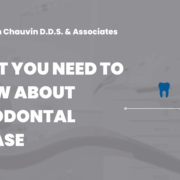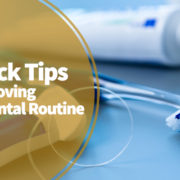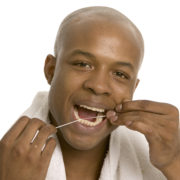How Energy Drinks Affect Dental Health
Energy drinks are everywhere—from gas stations to grocery stores—and they’re often marketed as a quick way to boost focus and stamina. But while they may provide a temporary energy lift, energy drinks can have serious consequences for your teeth.
According to Lafayette dentist Dr. Tim Chauvin, energy drinks are especially harmful to tooth enamel due to their high acid content. If you or your child regularly consume energy drinks, understanding how they affect dental health is an important step toward protecting your smile.
Why Energy Drinks Are So Hard on Teeth
Most energy drinks contain citric acid, a preservative and flavor enhancer also found in soda, sports drinks, and fruit juices. The difference is concentration. Energy drinks often contain much higher levels of citric acid, which makes them especially damaging to tooth enamel.
Tooth enamel is the hard, protective outer layer of your teeth. It shields them from decay and sensitivity. Once enamel wears away, it does not regenerate. The damage is permanent.
In addition to enamel erosion, excessive citric acid consumption has been linked to other health concerns, including kidney stones and reduced bone density, particularly when energy drinks replace healthier options like milk or water.
What Research Shows About Acid and Enamel Loss
Researchers studying the effects of energy drinks on teeth exposed sliced molars to various energy and sports drinks for 15 minutes at a time, followed by two hours in artificial saliva. This process was repeated four times a day over five days.
The researchers measured:
-
pH levels
-
Fluoride content
-
Titratable acidity (how long it takes saliva to neutralize acid)
While both sports drinks and energy drinks caused enamel loss, energy drinks caused significantly more damage. Their higher acidity made them harder for saliva to neutralize, increasing the risk of erosion and cavities.
What This Means for Your Dental Health
Industry groups often point out that cavities and enamel loss aren’t caused by a single factor. Oral hygiene habits, diet, lifestyle, and genetics all play a role. That’s true.
However, the impact of energy drinks on tooth enamel is well-documented—and especially concerning for teenagers and young adults, whose teeth may be exposed repeatedly over time.
Regular energy drink consumption increases the risk of:
-
Enamel erosion
-
Tooth sensitivity
-
Cavities
-
Discoloration
For most people, better sleep, hydration, and balanced nutrition are far healthier ways to maintain energy—without sacrificing dental health.
Concerned About Energy Drinks and Your Smile?
If you’re worried about how energy drinks may be affecting your teeth (or your child’s), Dr. Tim Chauvin provides preventive, restorative, and family dental care in Lafayette, Louisiana.
To schedule an appointment or learn more about protecting your smile, contact Dr. Chauvin’s office today.
Early intervention can make a lasting difference.



